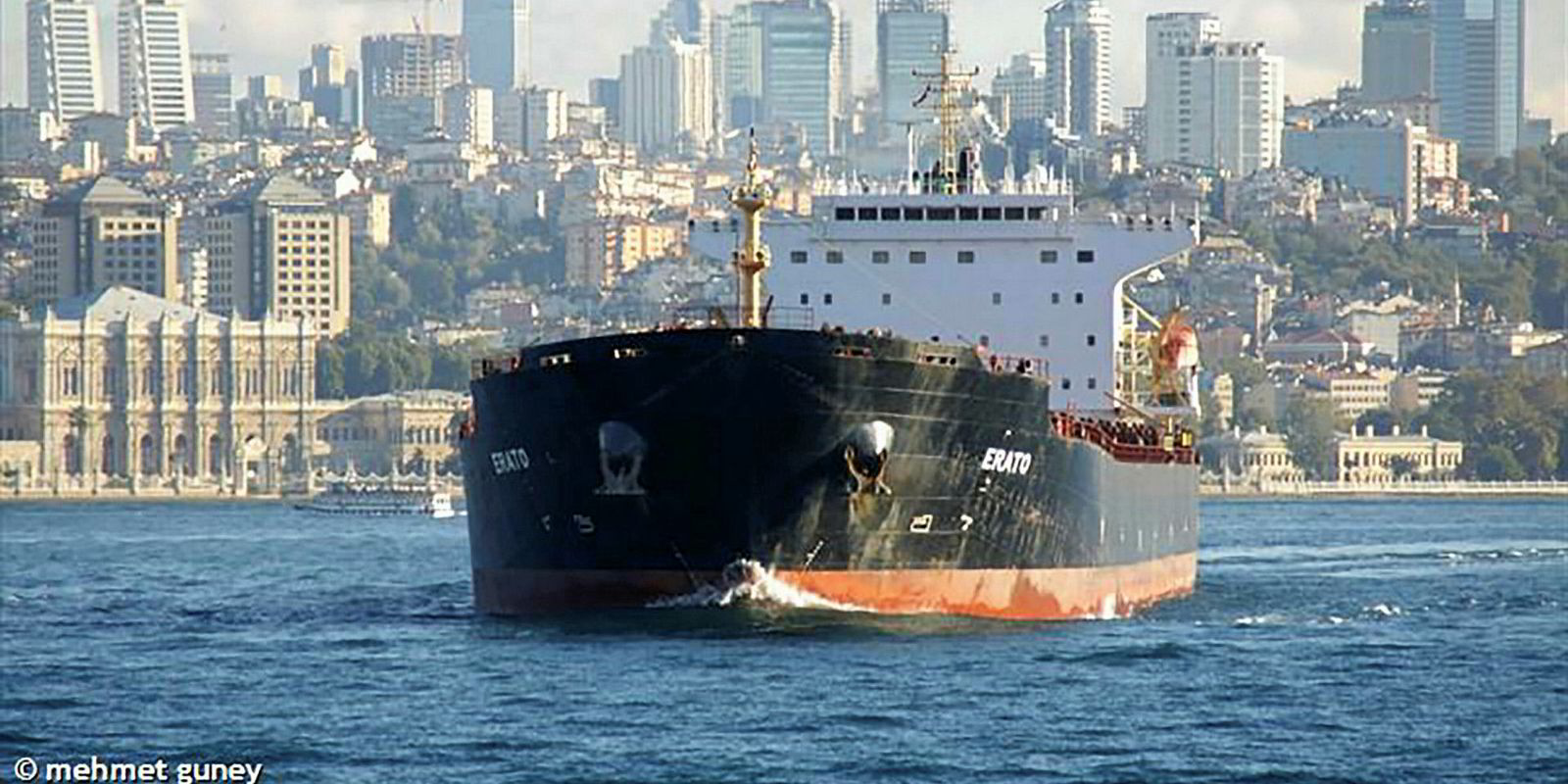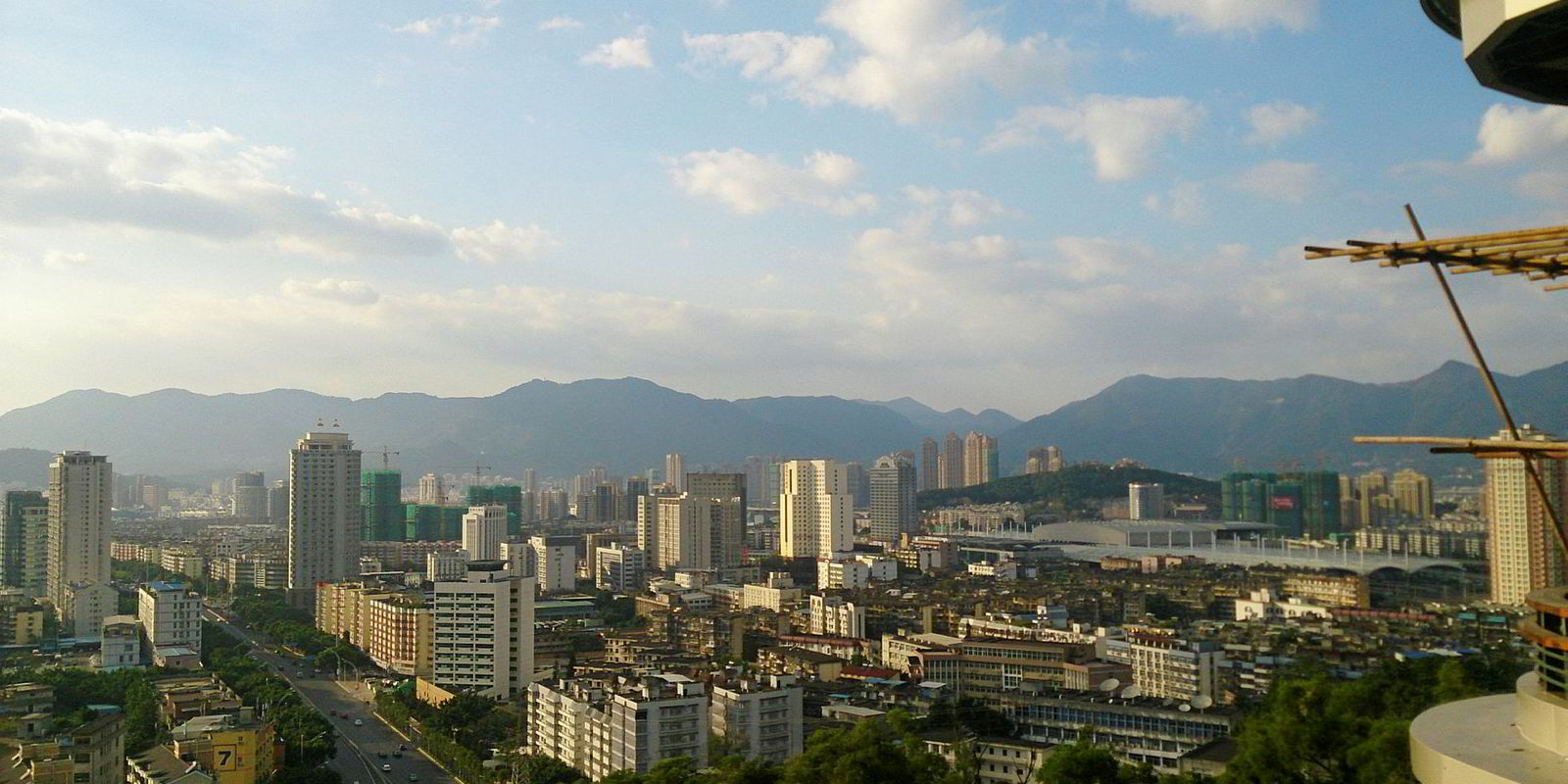The once vibrant cluster of small shipowners in Fuzhou is reawakening after several years of inactivity.
Chinese brokers said at least a dozen buyers in the south-east Chinese city are seriously in the market, as falling prices make buying veteran tonnage at just above scrap value feasible.
Brokers said renewed interest is coming from committed shipping businesses, not from speculators. In some cases, owners that had sold or scrapped all of their ships over the past four or five years are returning.
TradeWinds has learned of several recent bulker sales to "unknown Chinese buyers" that have gone to Fuzhou companies.
Most recently, Diana Shipping's 74,400-dwt bulker Erato (built 2004) was sold to previously unknown Kaishun Shipping, based on Fuzhou's Pingtan Island, for the Indonesian coal trade. The shipowner reportedly paid $7m, with a survey due for the vessel.

Other recent purchases have been made by companies including Jiuzhou International Shipping and New Fortune Union. But more Fuzhou bargain hunters are waiting in the wings.
Survival strategy
Jiuzhou, which is part of the Hongda Group, is a former capesize owner that survived the shipping drought by branching out into dredging and marine engineering contracts with self-unloaders while scaling down its merchant shipping activities. In December, it purchased two panamax self-unloaders and bought one conventional panamax in a recent unreported sale. All three ships came from Oldendorff Carriers of Germany.
A company official said Jiuzhou will take delivery in May of the Burmeister & Wain-built, 75,500-dwt City of Dubrovnik (built 1995). The official did not disclose the price, but VesselsValue estimates it is worth $5.09m, which is its demolition value.
The 24-year-old bulker, which is due for special survey in January 2020, is not intended for conversion and will be used in regional trading between South East Asia and China.
"It looks good and well maintained," the official said.
Three other 1995-built sisterships from the historic Danish yard are still trading, all under the Chinese flag for other Chinese shipowners.
In December, Jiuzhou acquired Oldendorff's 77,000-dwt Carol and Berni (both built 1991) for $6.75m each, to work on a reclamation project for Hong Kong airport's third runway, although one of the ships is also used for trading.
The vessels have been renamed Carol HK and Berni HK.
Another once-familiar Fuzhou name that has re-emerged is former panamax owner Ocean Faith, which is led by Captain Michael Zheng (Zheng Ronghua). He also heads New Fortune Union, which is a joint venture with Chen Ruifa, another Fuzhou owner.

Ocean Faith has built back up to a fleet of one handymax and three panamaxes. New Fortune Union has a handymax and two panamaxes, with its most recent purchase being the 74,400-dwt Pontonikis (built 2002).
Zheng told TradeWinds that New Fortune Union acts as manager for the Pontonikis for another Fuzhou owner, but it owns the rest of its ships.
The DSME-built vessel was reported sold in February by Greece's Ocean Freighters to an unknown owner for a very low price.
Reports at the time ranged from $7m to $7.3m. Zheng put the price at $7m, but one well-informed source said the Fuzhou buyer acquired the ship for a net price of just under $6.5m.
The Fuzhou owners now are looking for Japanese and Chinese-built supramaxes and panamaxes, with a seller's price idea in the high $5m to low $6m [for ships] built in 2000 or 2001
Sale-and-purchase broker
Lower prices expected
However, shipowners are expecting even lower prices for 16-year-old to 18-year-old medium-size tonnage today.
They cited the reported $6.1m sale of Navios Maritime Partners' 74,200-dwt Navios Galaxy I (built 2001).
The buyer is described as a Fuzhou player previously active as an operator of chartered tonnage and also as an owner of small domestic ships. Some connect the deal to new shipowner Su Jianbin, who could not be reached for comment.
"The Fuzhou owners now are looking for Japanese and Chinese-built supramaxes and panamaxes, with a seller's price idea in the high $5m to low $6m [for ships] built in 2000 or 2001," said one sale-and-purchase broker actively engaged there. "There is not much difference in supramax and panamax prices at this age."
The focus is on ships of that vintage, although one Fuzhou shipowner said that the Erato sale shows that his community is also attracted by current prices on slightly younger tonnage.
Three types of owner
A shipbroker for another shop characterised the reawakened Fuzhou market as consisting of three types of owners.
"First, there are owners who were previously purely domestic Chinese ship operators and shipowners, who earned good money when the coastal trade was very profitable," the S&P broker said. "Now that the domestic market is not so good, they are looking for tonnage for international trading.
"Second, there are some traditional shipowners who have always been in the international market, but scrapped or lost their fleet over the past few years.
"And third, [there are] pure shipping business people such as operators and technical managers, who see a chance to become owners because asset values are attractive.
"These are not speculators, and they are not people who simply have a COA [contract of affreightment] opportunity and calculate the charter returns, the ship price and the operating expenses and buy a ship."
The shipowning cluster in Fuzhou is characterised by small partnerships of private shipping companies with technical shipmanagement skills that pool the equity investments of family, friends and direct local contacts to buy older bulkers and maintain them intensively until disposal.
Some shipowners in the Fujian province city have used lease financing but bank mortgage financing is not common, and equity in the all-cash deals is typically returned to all partners when the ship is sold.
Shipowners contrast the Fuzhou model to that of the shipowning clusters in the cities of Ningbo and Taizhou in neighbouring Zhejiang province to the north, where shipping investments are often driven by a business' wish to diversify from another industry.




